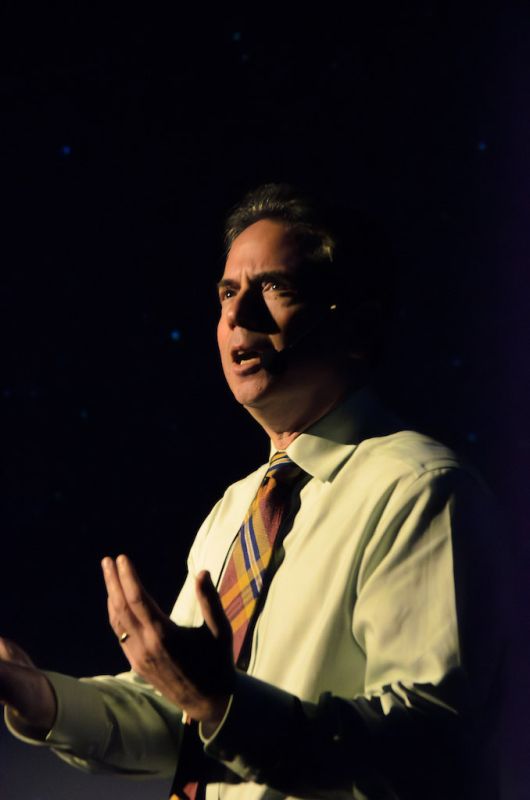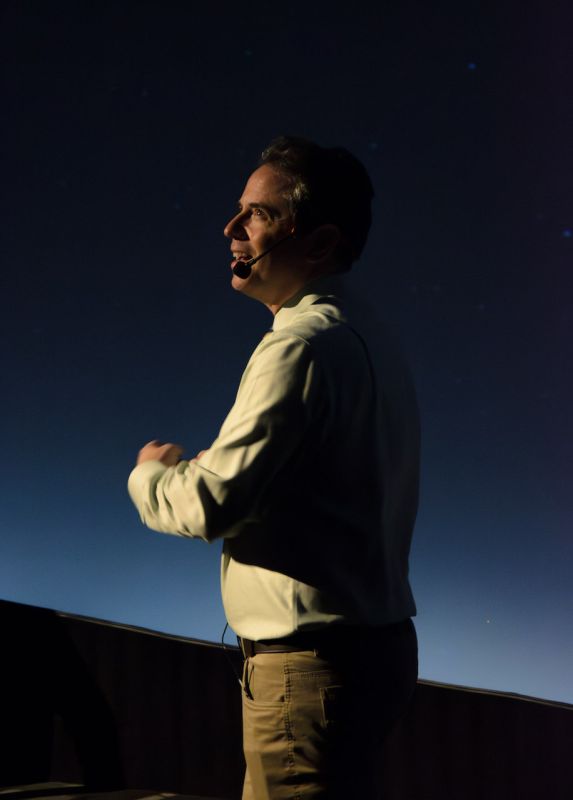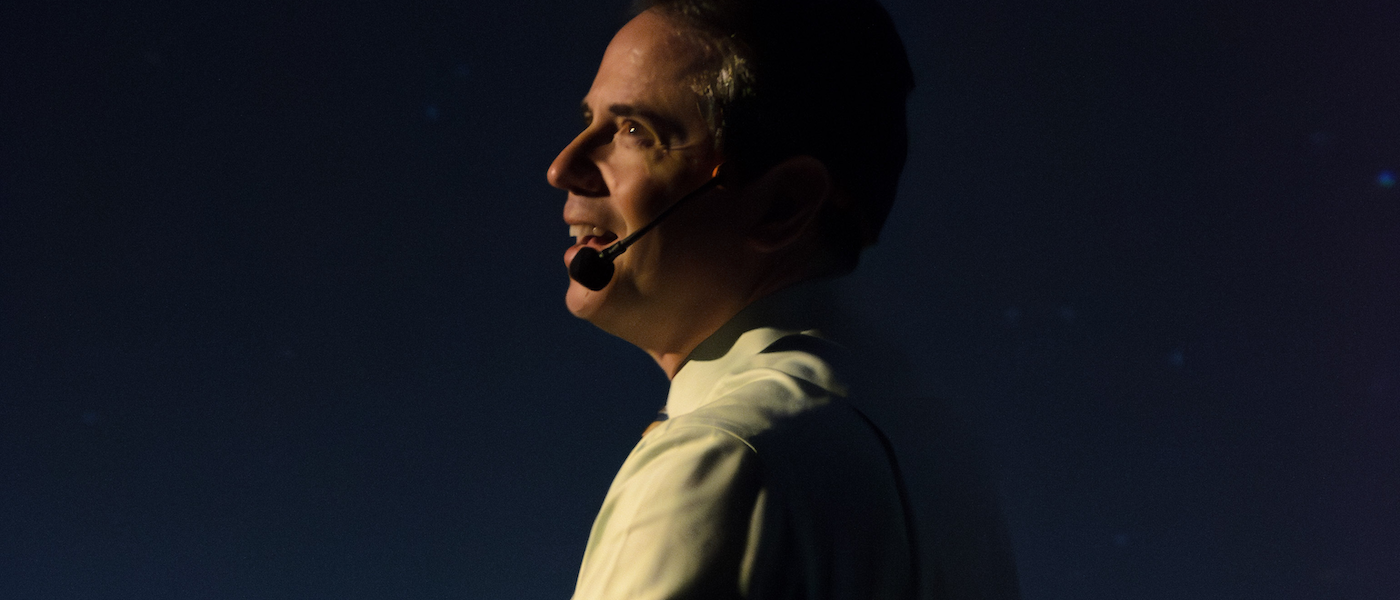Dr. Josh Winn’s Space Talk presentation takes viewers through strange new worlds
On May 9, 2024, Liberty Science Center hosted Dr. Josh Winn, professor of astrophysics at Princeton University, for our latest Space Talk presentation: “Strange New Worlds.”

For most of human history, we’ve known about only one solar system – ours. Our solar system, overall, is a very well-organized group of eight planets. The rocky planets Mercury, Venus, Earth, and Mars are closer to the Sun than the gas giant planets, Jupiter, Saturn, Uranus, and Neptune which are all much further out. The orbits of our planets (the paths they take around the Sun) are all mostly circular and all share the same flat orbital plane.
However, as scientists began to discover other solar systems outside our own, they began to learn that our neat, tidy solar system was very much the exception and not the rule.
Dr. Winn took viewers on a journey throughout the galaxy in the country’s largest planetarium to explore some of the stranger planets we have discovered, and just how we learn about them. Kepler-78b, at first glance, resembles Earth – having roughly the same mass, size, and density, but with one very key difference. Kepler-78b has a temperature around 5,000 °F, thanks to the fact it orbits its host star at a distance 40 times closer than even Mercury orbits the Sun.
At this close distance, it’s likely that Kepler-78b will fall into its host star in the future – quite the difference between Earth’s cozy relationship with our Sun!

Kepler-1647b, on the other hand, is a planet that feels more at home in science fiction than in our reality. Unlike our solar system, which has just one star at the center, this solar system has two stars orbiting each other at its center with one, lonely gas giant planet about the size of Jupiter traveling around them. The view from the atmosphere of this planet, or from any moons around the planet, would resemble the view Luke Skywalker had of his two suns on Tatooine in Star Wars.
With recent and upcoming advances in telescope technology, including the recently launched James Webb Space Telescope and the anticipated LUVOIR telescope (hopefully launching in the 2030), we’re just beginning to scratch the surface of what other strange new worlds may be out there.
Join us next month on Thursday, June 6, as we welcome back Dr. Saurabh Jha, professor of physics and astronomy at Rutgers University, for his third Space Talk exploring exploding stars throughout the universe. Click here to learn more and reserve your spot now!
